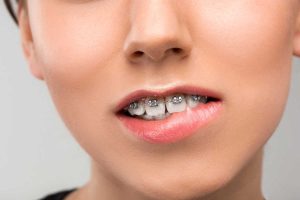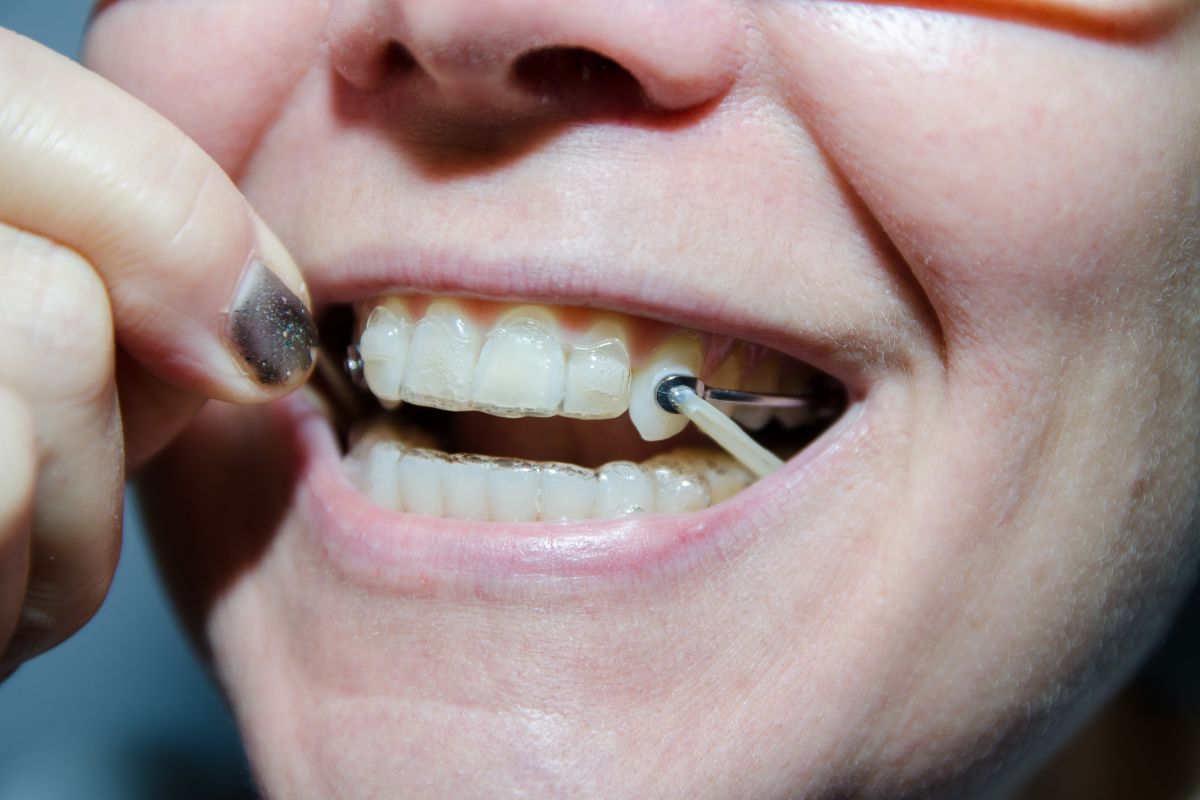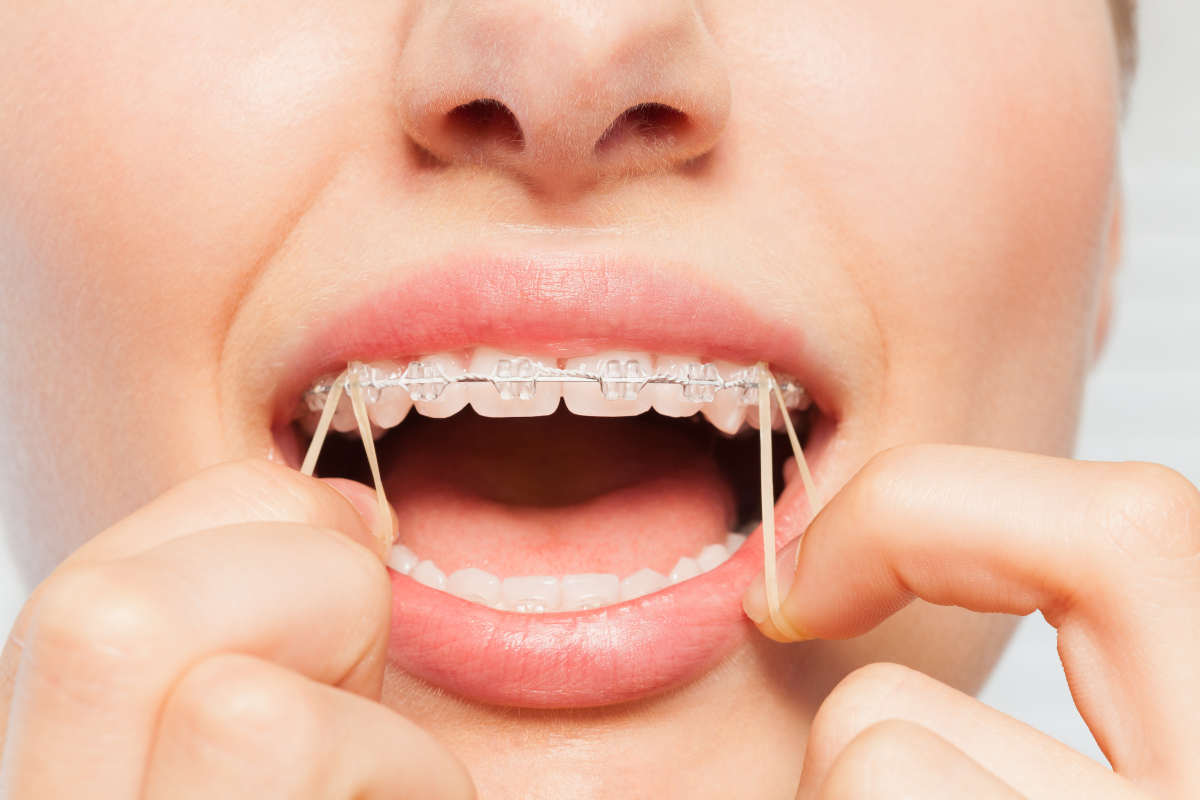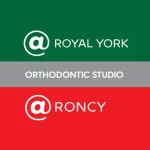

Introduction
Having a proper bite is essential for good oral health and overall well-being. An overbite, also known as a deep bite, occurs when the upper front teeth cover the lower front teeth more than they should. It can cause problems like jaw pain, trouble chewing, trouble speaking, and even low self-esteem. Fortunately, several orthodontic treatment options are available to correct an overbite and restore a balanced bite. This article will explore the best orthodontic treatment options for overbite and help you understand which option might suit you.
What is an Overbite?
Overbite is a dental condition in which the upper front teeth overlap the lower front teeth vertically. The vertical distance between the upper and lower incisors measures it. In a normal bite, the upper teeth slightly overlap the lower teeth. When the upper teeth overlap the lower teeth too much, this is called an overbite. Overbites can be classified as either skeletal or dental, depending on the underlying cause.
Causes of Overbite
Several factors can contribute to the development of an overbite. These include:
Genetics
Overbites can be hereditary, meaning they can be passed down through generations.
Thumb sucking
Prolonged thumb sucking or pacifier use can push the front teeth forward and contribute to an overbite.
Malocclusion
Irregularities in jaw size or tooth alignment can lead to the development of an overbite.
Poor oral habits: Tongue thrusting or mouth breathing can also contribute to the development of an overbite.
Understanding the underlying causes of an overbite can help determine the most appropriate orthodontic treatment option.
Types of Overbite
There are two primary types of overbite: skeletal and dental.
Skeletal overbite
Skeletal overbites occur when the upper jaw (maxilla) protrudes forward, or the lower jaw (mandible) is positioned too far back. It is usually a result of skeletal discrepancies.
Dental overbite
Dental overbites result from tooth misalignment rather than skeletal issues. The upper teeth may be positioned too far forward, causing excessive overlap with the lower teeth.
Determining the type of overbite is crucial in deciding the appropriate treatment option.
Consequences of Untreated Overbite
If left untreated, an overbite can lead to various complications, including:
Chewing difficulties
A severe overbite can make it challenging to bite and chew food correctly, leading to digestive problems.
Speech issues
Excessive front teeth can affect speech clarity and pronunciation.
Tooth wear
Over time, the improper alignment of the teeth can result in uneven tooth wear and damage to the enamel.
Jaw pain
An overbite can strain the jaw joints and cause pain or discomfort.
Self-esteem concerns
A noticeable overbite may affect a person’s self-confidence and social interactions.
Considering the potential consequences, seeking orthodontic treatment becomes crucial for individuals with overbite issues.
Orthodontic Treatment Options
Orthodontic treatment aims to correct the alignment of the teeth and jaws to achieve a harmonious bite. There are several effective treatment options available for overbite correction:
Traditional braces
Traditional Braces are the most common and time-tested orthodontic treatment for overbite correction. They consist of metal brackets and wires that gradually move the teeth into their desired positions. Braces offer precise control over tooth movements and can effectively address complex overbite cases.
Clear aligners
Clear aligners have gained popularity as a discreet and comfortable alternative to traditional braces. These custom-made, clear plastic trays gradually shift the teeth into proper alignment. Clear aligners are removable, making oral hygiene more manageable, but they may have limitations in treating severe skeletal overbites.
Lingual braces
Lingual Braces are similar to traditional braces but are placed on the inner surface of the teeth. They provide adequate treatment while remaining hidden from view. Lingual braces are an excellent option for individuals concerned about aesthetic appearance during treatment.
Orthognathic Surgery
Orthognathic surgery may be necessary in severe cases of skeletal overbite. This surgical procedure involves repositioning the jaws to correct the underlying skeletal discrepancy. Orthognathic surgery is typically performed with orthodontic treatment to achieve optimal results.
Headgear
A Headgear is an external orthodontic appliance used in some instances to correct overbites. It applies pressure to the teeth and jaws, promoting proper alignment. Headgear is usually worn at night or for a specified duration each day.
Accelerated Orthodontics
Accelerated Orthodontics is a relatively new approach that aims to shorten treatment time. Techniques such as AcceleDent® or Propel® stimulate bone remodeling, allowing teeth to move faster. This option can be considered for individuals seeking to expedite orthodontic treatment.
Retainers
This orthodontic appliance is crucial after orthodontic treatment to maintain the corrected position of the teeth. They can be removable or fixed and should be worn as directed by the orthodontist. Retainers prevent relapse and help ensure long-term stability.
Choosing the Best Orthodontic Treatment
Choosing the best orthodontic treatment for overbite depends on various factors, including:
The severity of Overbite
The extent of the overbite and its underlying cause will determine the most suitable treatment option.
Age and growth
Age can affect treatment choices, as some orthodontic treatments are more effective during specific developmental stages.
Aesthetic concerns
Individuals may prefer more discreet options like clear aligners or lingual braces.
Say Goodbye To Overbites
An overbite can cause functional, aesthetic, and psychological issues, but it can be effectively corrected with the proper orthodontic treatment. Whether you opt for traditional braces, clear aligners, lingual braces, or even orthognathic surgery, the goal is to achieve a harmonious bite and a confident smile. Remember to consult a qualified orthodontist who can guide you through the treatment process and help you choose the most suitable option for your overbite correction needs.
“A positive self-image and self-confidence can result from proper orthodontic care.”
This belief has been our foundation for over 17 years of creating beautiful, straight, and confident smiles!
With thousands of finished cases under our belt, we are confident in our ability to provide you and your family with excellent treatment delivered with expertise and care.
Plan your smile with one of the best Orthodontists in Toronto, Ontario. Schedule a virtual care or in-office appointment with us! Let’s work together to create the best smile for you and your family.
FAQs
How long does orthodontic treatment for overbite take?
Orthodontic treatment duration varies depending on the severity of the overbite and the chosen treatment option. It can range from several months to a few years.
Will orthodontic treatment for overbite be painful?
Orthodontic treatment may cause some discomfort initially and during adjustments. However, discomfort is usually temporary and can be managed with over-the-counter pain relievers.
Can adults undergo orthodontic treatment for overbite?
Yes, adults can undergo orthodontic treatment for an overbite. Age is not a barrier to orthodontic correction. However, treatment duration may be longer in adults compared to children or teenagers.
Will I need to wear a retainer after orthodontic treatment?
Yes, wearing a retainer after orthodontic treatment is crucial to maintain the corrected position of the teeth. Retainers prevent relapse and ensure long-term stability.
Can clear aligners effectively correct severe overbites?
Clear aligners can address mild to moderate overbites effectively. However, severe skeletal overbites may require alternative treatment options such as braces or orthognathic surgery.
Recent Posts
-
Inside the World of Orthodontists: Education, Precision, and Transformative Treatments
The Evolution of Orthodontics: A Brief Historical Overview Orthodontics, an integral branch…
-
How Orthodontists Plan a Treatment for a Beautiful Smile
Understanding the Patient's Unique Needs A positive self-image and confidence can result…
-
Unleash Your New Smile! Here's What You Need to Know Before Braces Removal
Are you excited to see your smile transformation? Taking your braces off…
-
Traits That a Good Orthodontist Should Have
Choosing an orthodontist is half your smile transformation journey. That’s why in…
-
How Braces Can Help Fix an Asymmetrical Jawline
An asymmetrical jawline can cause concern for many individuals, affecting their appearance…
-
Can Cavities Be Reversed?
Cavities are among the most common dental issues people of all ages…
-
What to Prepare During Your First Braces Appointment
Are you about to embark on your journey to a beautiful smile…
-
Taking Care of Baby Teeth: A Comprehensive Guide for Parents
Caring for our children's health is one of our most crucial responsibilities…
-
What are Brace Elastics?
If you or someone you know is undergoing orthodontic treatment with braces,…
-
Difference Between an Overjet and Overbite: A Comprehensive Guide
Two orthodontic terms that often confuse our patients are "overjet" and "overbite."…







 Instagram
Instagram
